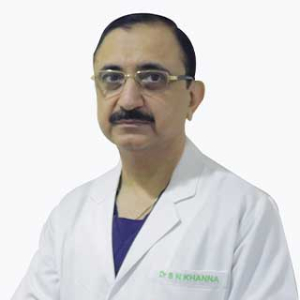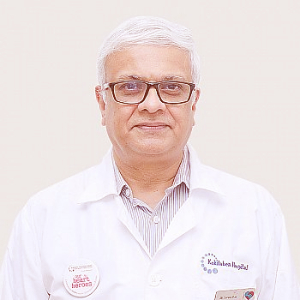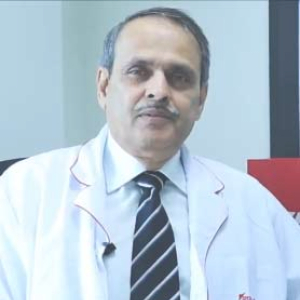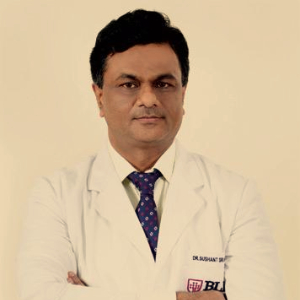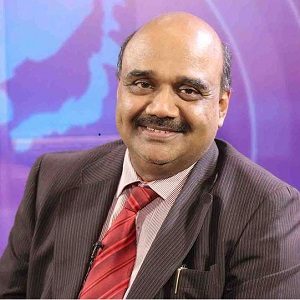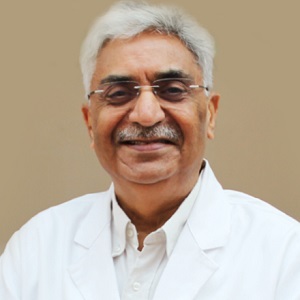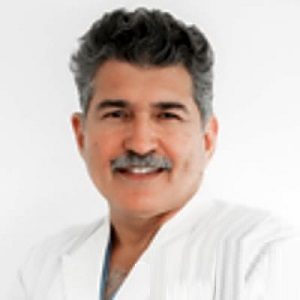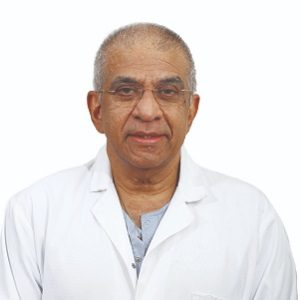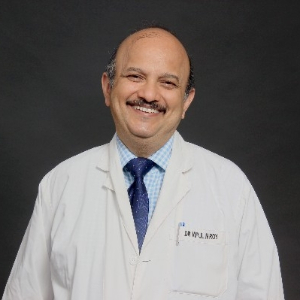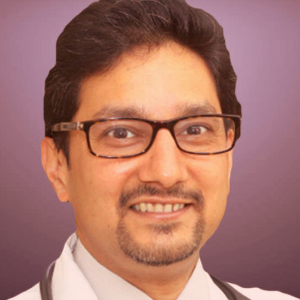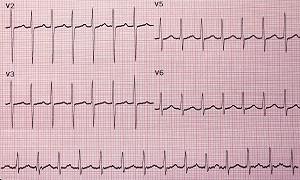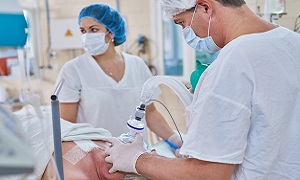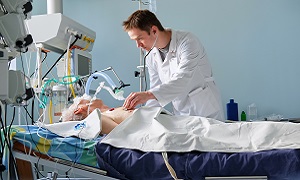Best Doctors in India for Ross Procedure
- Cardiac Surgeon, New Delhi, India
- Over 26 years’ experience
Profile Highlights:
- Dr. Surendra Nath Khanna is a leading cardiovascular and thoracic surgeon specializing in minimally invasive cardiac surgeries, heart valve repairs, and heart failure surgeries.
- Dr. Surendra Khanna has 26+ years of experience in cardiac care and has performed more than 17000 surgeries that include beating heart surgery, mitral and aortic valve surgery, and double valve replacement surgery.
- His expertise lies primarily in adult cardiac surgeries and has done some of the most complex cardiac surgeries in India
- Pediatric Cardiac Surgeon, Mumbai, India
- Over 33 years’ experience
Profile Highlights:
- Dr. Suresh Rao is a highly experienced cardiac surgeon specializing in congenital heart diseases and has performed more than 12,000 surgeries for congenital heart diseases and disorders.
- Dr. Rao holds an extensive experience of over 33 years in Pediatric and congenital cardiac surgery and has performed numerous simple and complex heart defect surgeries with successful outcomes.
- Dr. Suresh Rao introduced the Modified Ultrafication procedure after congenital heart surgery in India and has used the procedure in the treatment of a large number of pediatric as well as adult patients.
- Cardiac Surgeon, Mumbai, India
- Over 30 years’ experience
Profile Highlights:
- Dr. Suresh V Joshi is a cardiac surgeon in Mumbai with expertise in undertaking complex surgeries as a result of congenital heart diseases.
- He holds an extensive experience of over 3 decades in cardiac surgery and specializes in Coronary Artery Bypass Grafting (CABG); specifically Beating Heart CABG and Minimally Invasive Cardiac Surgeries.
- He is an expert in all kinds of coronary and interventional cardiac procedures and has performed over 15,000 cardiac surgeries for different kinds of heart defects and disorders.
- Chairperson Heart & Lungs Transplant, New Delhi, India
- Over 20 years’ experience
Profile Highlights:
- Dr. Sushant Srivastava is a renowned cardiovascular and thoracic surgeon specializing in heart transplantation.
- He specializes in performing Beating Heart Bypass surgeries and is credited with performing the procedure on the oldest patient in India (96 years old). He also performed the first awake CABG in North India.
- He has taken up close to 10000 cardiac cases in his career and performed 3000+ cardiac surgeries related to Coronary Artery Bypass Grafting (CABG), redo coronary artery surgery, heart failure surgeries, heart valve surgeries, and various other types of cardiac surgeries.
- Cardiothoracic Surgeon, Chennai, India
- Over 25 years’ experience
Profile Highlights:
- Dr. T Sundar is one of the best cardiothoracic surgeons in India.
- He is having extensive exposure to critical heart diseases and he has operated on them successfully.
- Dr. T Sundar is a Senior Consultant at Apollo Hospitals since 2003.
- He has been associated with international standards of surgery and diagnosis since his education period.
- Vascular Surgeon and Interventional Cardiologist, Gurugram, India
- Over 30 years’ experience
Profile Highlights:
- Dr. T S Kler is undoubtedly one of the best vascular surgeons not only in India but also abroad. He has performed more than 25,000 Surgeries in his life which makes him stand where he is.
- He is a pioneer in electrophysiology & he established the first dedicated Electrophysiology department in India at Fortis Escorts Heart Institute.
- Dr. T S Kler initiated a radio Frequency Ablations programme at Escorts in 1993, one of the first of its kind in India. He was the first doctor in India to implant an ICD, CRT-P & CRT-D.
- Cardiovascular Surgeon, Cardiac Surgeon, Gurugram, India
- Over 32 years’ experience
Profile Highlights:
- Dr. Vijay Kohli is one of the best cardiac surgeons in India. He has brought an evolution in the spectra of Cardiac Surgery, wherein, he was the first leading surgeon to perform CABG on a beating heart in Kathmandu, Nepal.
- Vijay Kohli performed the first coronary artery bypass surgery in Jammu Medical College in 2001.
- Cardiac Surgeon, Cardiothoracic Surgeon, Vascular Surgeon, Chennai, India
- Over 31 years’ experience
Profile Highlights:
- Dr. Vijay Shankar S is a senior cardio-thoracic Surgeon in Chennai having experience of more than 30 years in Cardiac Surgery.
- Dr. Vijay Shankar was a fellow Coronary Artery Surgery and Congenital Heart Surgery at the University of Wisconsin, USA.
- He provides consultation and diagnostic services for Mitral/Heart Valve Replacement, Cardiac Pacing, Invasive Cardiology, ABPM, Balloon Mitral Valvuloplasty, CT Angiography, etc.
- Interventional Cardiologist, New Delhi, India
- Over 30 years’ experience
Profile Highlights:
- Dr. Vipul Roy is one of the best practicing Cardiologists in India, currently associated with the Indraprastha Apollo Hospital in New Delhi.
- After completing his MD, Dr. Roy travelled to UK where he spent eight years in Liverpool at Regional Adult Cardiothoracic Center.
- In 1994, he came back to India and joined Interventional Cardiology at Escorts Heart Institute in New Delhi as a consultant.
- Interventional Cardiologist, New Delhi, India
- Over 20 years’ experience
Profile Highlights:
- Dr. Vishal Rastogi is a leading Interventional Cardiologist in Delhi specializing in Heart Failure Management.
- Dr. Vishal Rastogi has over 20 years of experience in the field and holds the credit for the largest number of Impella Left Ventricular Assist Device (LVAD) implants in critically ill patients in India.
- He has performed a large number of Coronary and Peripheral Angiographies and diagnostic cardiac catheterizations in both adult and pediatric patients among several other interventional cardiac procedures.
Best Hospitals in India for Ross Procedure
Ross Procedure
The Ross procedure also known as the pulmonary autograft procedure, is a surgical technique meant to replace a diseased aortic valve. The procedure involves replacing the person’s aortic valve with a person’s own pulmonary valve. The pulmonary valve is next replaced with the person’s own pulmonary allograft.
The procedure is used more often in children, but its use in adults is controversial.
The procedure has been named after Dr. Donald Ross, a pioneer in cardiac surgery in the UK, who had performed it first in 1967.
Purpose
Over the past few years, the Ross procedure has gained significant popularity among people who need an aortic valve replacement. An operation is generally an excellent option for physically active young children, as well as young women who are of childbearing age.
The procedure is preferred as it has many as it has several advantages which include:
- No need for anticoagulation
- Growth potential in children
- Low incidence of thromboembolism
- Excellent Hemodynamics
- Low incidence of endocarditis
Preparation
It is likely that your doctor will recommend a few tests before the procedure, which includes:
- Chest X-ray
- Blood tests, in order to check the general health
- Electrocardiogram, to check the heart rhythm
- Echocardiogram, in order to look at the heart and the blood flow through the heart
- Heart catheterization, to better look at the coronary blood vessels or to measure the pressure in the heart and lungs
The hair around the area of operation might be removed prior to the surgery.
Procedure
Next, your surgeon will make an incision in the middle of the chest. In order to reach the heart, the surgeon will be separating the breastbone. Next, he/she will remove your diseased aortic valve and replace it with your own pulmonary valve, which is similar in anatomy.
Next, the breastbone is put together with wires, and the surgeon closes the muscle and the skin. A dressing will be applied as well.
Within a few months, the pulmonary valve becomes thicker and stronger and begins to behave like an aortic valve.
After the procedure
Risks
In most cases, the surgery is a success. But sometimes there might be a few complications. Risk factors might vary based on your age as well as other health problems. Some of the risks associated with this procedure include:
- Infection
- Excess bleeding
- Heart block
- Irregular heart rhythms
- Complications from anesthesia
- Blood clots leading to stroke or heart attack
Sometimes, the surgery might fail to work. This might make another surgery necessary.

